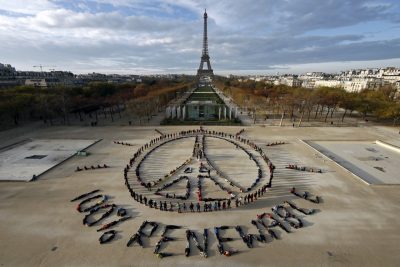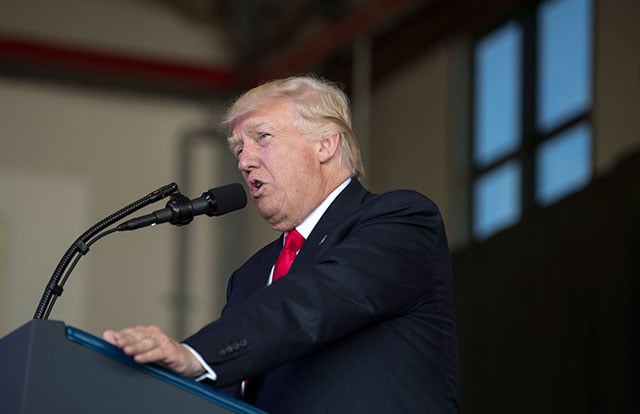Saudi Arabia, UAE, Egypt, Bahrain cut ties to Qatar
Qatar calls decision by Gulf nations and Egypt 'unjustified', saying allegations against Doha have 'no basis in fact'.
Saudi Arabia, the United Arab Emirates, Egypt, Bahrain, Yemen and the Maldives say they are severing diplomatic relations with Qatar.
The Saudi kingdom made the announcement via its state-run Saudi Press Agency early on Monday, saying it was taking action for what it called the protection of national security.
The news agency released a statement in which it accused Qatar of "harbouring a multitude of terrorist and sectarian groups that aim to create instability in the region".
The three Gulf states gave Qatari visitors and residents two weeks to leave their countries, Reuters news agency reported.
Saudi also closed the border and halted air and sea traffic with Qatar, urging "all brotherly countries and companies to do the same".
The statement appeared to be timed in concert with an earlier announcement by Bahrain, which was similarly cutting ties and halting air and sea traffic between the two countries.
"The measures are unjustified and are based on claims and allegations that have no basis in fact," the statement said, adding that the decisions would "not affect the normal lives of citizens and residents".
"The aim is clear, and it is to impose guardianship on the state. This by itself is a violation of its [Qatar's] sovereignty as a state," it added.
Bahrain's foreign ministry issued a statement saying it would withdraw its diplomatic mission from the Qatari capital, Doha, within 48 hours and that all Qatari diplomats should leave Bahrain within the same period.
The UAE said in a statement it was cutting off all ties with Qatar. It also ordered Qatari citizens to leave te country within 14 days and banned its citizens from travelling to Qatar.
Egypt also announced the closure of its airspace and seaports for all Qatari transportation "to protect its national security", the foreign ministry said in a statement.
Later on Monday, the Maldives said in a statement that it took the decision to sever diplomatic ties "because of its firm opposition to activities that encourage terrorism and extremism".
UAE-based carriers Emirates, Etihad Airways and FlyDubai said they would suspend flights to and from Qatar beginning Tuesday morning.
It was not immediately clear how Monday's announcement would affect other airlines.
A Saudi-led coalition which for more than two years has been fighting Iran-backed rebels in Yemen separately announced that Qatar was no longer welcome in the alliance.
Yemen's internationally recognised government also cut ties with Qatar, accusing it of working with its enemies in the Iran-aligned Houthi movement, state news agency Saba reported.
A senior Iranian official said the measures by the Arab nations would not help end the crisis in the Middle East.
"The era of cutting diplomatic ties and closing borders ... is not a way to resolve crisis ... As I said before, aggression and occupation will have no result but instability," Hamid Aboutalebi, deputy chief of staff of Iran's President Hassan Rouhani, tweeted, referring to the coalition's involvement in Yemen.
US Secretary of State Rex Tillerson gave a statement on Monday while on a state visit in Australia, urging the Gulf states to stay united.
"We certainly would encourage the parties to sit down together and address these differences," he said in Sydney.
"If there's any role that we can play in terms of helping them address those, we think it is important that the GCC [Gulf Cooperation Council] remain united."
Tillerson said despite the impasse, he did not expect it to have "any significant impact, if any impact at all, on the unified fight against terrorism in the region or globally".
"All of those parties you mentioned have been quite unified in the fight against terrorism and the fight against Daesh, ISIS, and have expressed that most recently in the summit in Riyadh," he added, using alternative names for the Islamic State of Iraq and the Levant (ISIL) group.
Mevlut Cavusoglu, Turkey's foreign minister, also called for dialogue to resolve the dispute.
"We see the stability in the Gulf region as our own unity and solidarity," Cavusoglu told a news conference.
"Countries may of course have some issues, but dialogue must continue under every circumstance for problems to be resolved peacefully. We are saddened by the current picture and will give any support for its normalisation".
Following the hacking on Tuesday, comments falsely attributed to Qatar's emir, Sheikh Tamim bin Hamad Al Thani, were broadcast in Qatar.
Qatar's government categorically denied that the comments, in which the country's leader expressed support for Iran, Hamas, Hezbollah and Israel - while suggesting that US President Donald Trump may not last in power, were ever made.
"There are international laws governing such crimes, especially the cyberattack. [The hackers] will be prosecuted according to the law," Mohammed bin Abdulrahman Al Thani, Qatar's foreign minister, said on Wednesday.
UAE-based Sky News Arabia and Al Arabiya kept running the discredited story, despite the Qatari denials.
Source: Al Jazeera
The Saudi kingdom made the announcement via its state-run Saudi Press Agency early on Monday, saying it was taking action for what it called the protection of national security.
The news agency released a statement in which it accused Qatar of "harbouring a multitude of terrorist and sectarian groups that aim to create instability in the region".
Saudi also closed the border and halted air and sea traffic with Qatar, urging "all brotherly countries and companies to do the same".
'Unjustified'
Qatar's foreign ministry said it regretted the measures by the Arab nations, calling the decisions "unjustified"."The measures are unjustified and are based on claims and allegations that have no basis in fact," the statement said, adding that the decisions would "not affect the normal lives of citizens and residents".
"The aim is clear, and it is to impose guardianship on the state. This by itself is a violation of its [Qatar's] sovereignty as a state," it added.
The UAE said in a statement it was cutting off all ties with Qatar. It also ordered Qatari citizens to leave te country within 14 days and banned its citizens from travelling to Qatar.
Egypt also announced the closure of its airspace and seaports for all Qatari transportation "to protect its national security", the foreign ministry said in a statement.
Later on Monday, the Maldives said in a statement that it took the decision to sever diplomatic ties "because of its firm opposition to activities that encourage terrorism and extremism".
UAE-based carriers Emirates, Etihad Airways and FlyDubai said they would suspend flights to and from Qatar beginning Tuesday morning.
It was not immediately clear how Monday's announcement would affect other airlines.
Yemen's internationally recognised government also cut ties with Qatar, accusing it of working with its enemies in the Iran-aligned Houthi movement, state news agency Saba reported.
A senior Iranian official said the measures by the Arab nations would not help end the crisis in the Middle East.
"The era of cutting diplomatic ties and closing borders ... is not a way to resolve crisis ... As I said before, aggression and occupation will have no result but instability," Hamid Aboutalebi, deputy chief of staff of Iran's President Hassan Rouhani, tweeted, referring to the coalition's involvement in Yemen.
US Secretary of State Rex Tillerson gave a statement on Monday while on a state visit in Australia, urging the Gulf states to stay united.
"We certainly would encourage the parties to sit down together and address these differences," he said in Sydney.
"If there's any role that we can play in terms of helping them address those, we think it is important that the GCC [Gulf Cooperation Council] remain united."
Tillerson said despite the impasse, he did not expect it to have "any significant impact, if any impact at all, on the unified fight against terrorism in the region or globally".
"All of those parties you mentioned have been quite unified in the fight against terrorism and the fight against Daesh, ISIS, and have expressed that most recently in the summit in Riyadh," he added, using alternative names for the Islamic State of Iraq and the Levant (ISIL) group.
Mevlut Cavusoglu, Turkey's foreign minister, also called for dialogue to resolve the dispute.
"We see the stability in the Gulf region as our own unity and solidarity," Cavusoglu told a news conference.
"Countries may of course have some issues, but dialogue must continue under every circumstance for problems to be resolved peacefully. We are saddened by the current picture and will give any support for its normalisation".
Hacking dispute
The dispute between Qatar and the Gulf's Arab countries escalated after a recent hack of Qatar's state-run news agency. It has spiralled since.Following the hacking on Tuesday, comments falsely attributed to Qatar's emir, Sheikh Tamim bin Hamad Al Thani, were broadcast in Qatar.
Qatar's government categorically denied that the comments, in which the country's leader expressed support for Iran, Hamas, Hezbollah and Israel - while suggesting that US President Donald Trump may not last in power, were ever made.
"There are international laws governing such crimes, especially the cyberattack. [The hackers] will be prosecuted according to the law," Mohammed bin Abdulrahman Al Thani, Qatar's foreign minister, said on Wednesday.
UAE-based Sky News Arabia and Al Arabiya kept running the discredited story, despite the Qatari denials.
Source: Al Jazeera



















